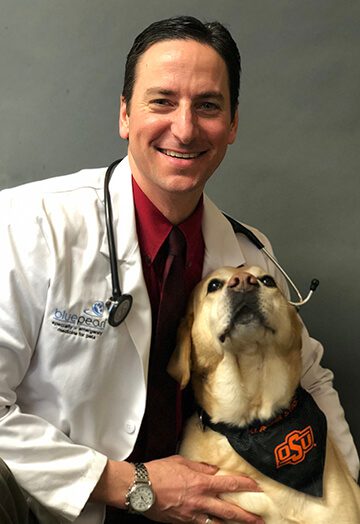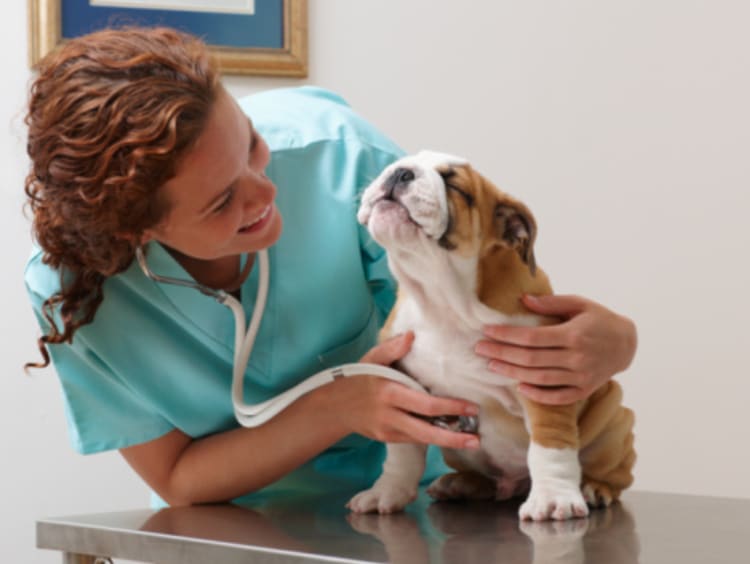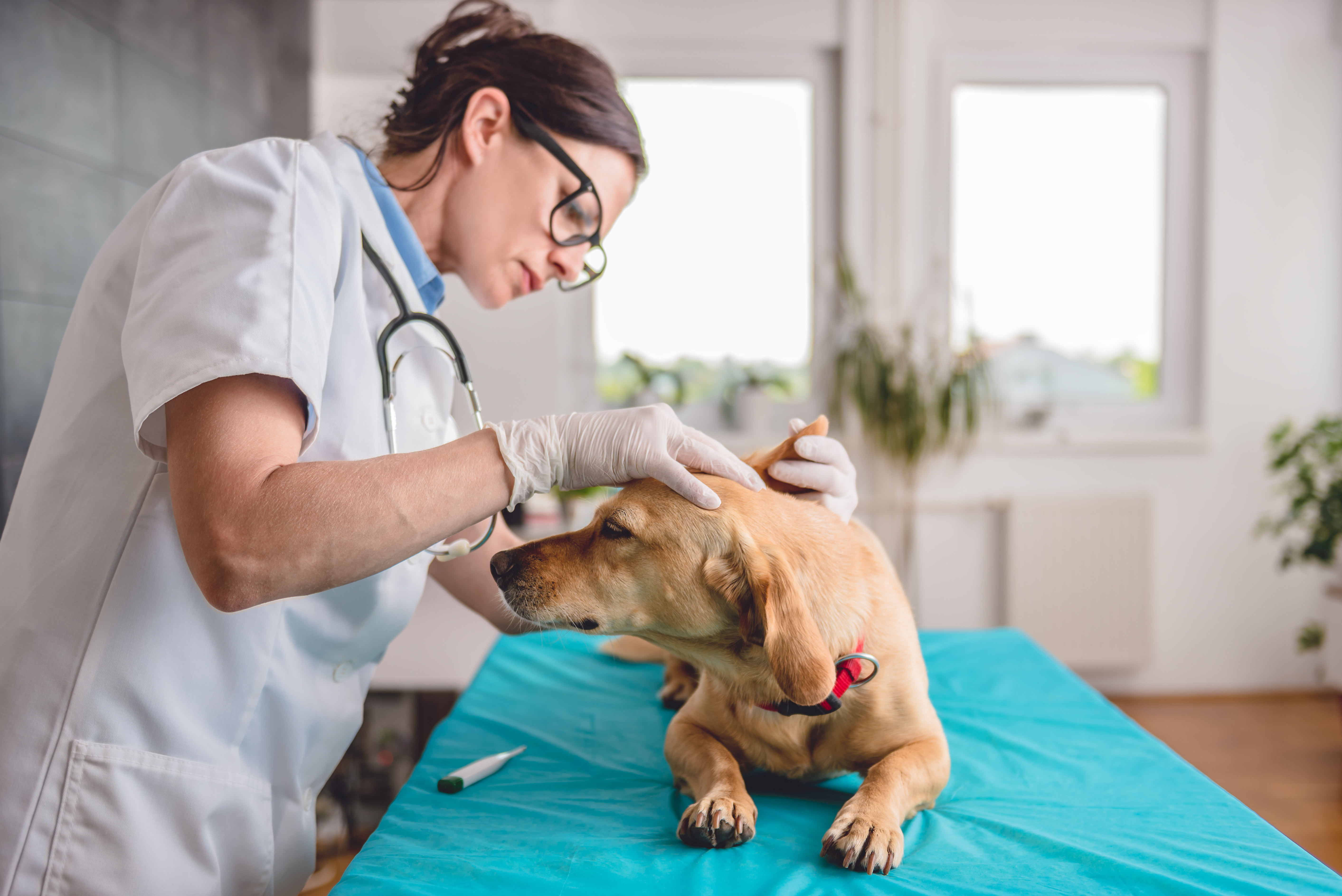Maintain Your Pet Healthy And Balanced with Routine Pet Health Checkups from Trusted Vets
Maintain Your Pet Healthy And Balanced with Routine Pet Health Checkups from Trusted Vets
Blog Article
Inoculation Standards From Your Trusted Veterinarian
Vaccination standards provided by your relied on vet play a vital role in safeguarding your pet's health and wellness and well-being. In addition, resolving usual false impressions surrounding injections can additionally improve pet owners' confidence in these precautionary actions.

Value of Vaccinations
Vaccinations play an essential role in securing pets versus a series of preventable illness. By boosting the body immune system to recognize and deal with specific microorganisms, vaccines dramatically minimize the incidence of infectious conditions that can impact an animal's health and longevity. Not only do inoculations protect private pets, however they additionally add to herd immunity, thus reducing the total frequency of conditions in the animal populace.
Timely inoculations aid to minimize the spread of illness such as rabies, parvovirus, and distemper, which can have extreme repercussions for both people and pets. In addition, vaccinations are frequently a need for boarding facilities, brushing solutions, and pet parks, making them essential for those that wish to mingle their animals.

Core Vaccines for Pet Dogs
While the certain vaccination needs of pet dogs can vary based upon specific aspects, core vaccines are universally advised to protect against the most major and common conditions (Pet Health Checkup). Core injections are those regarded necessary for all animals, despite their way of life or geographical place, as they secure against very infectious and potentially deadly ailments
For dogs, the core vaccinations include those for canine distemper, parvovirus, adenovirus (hepatitis), and rabies. Adenovirus can result in liver condition, while rabies is a zoonotic disease that poses a threat to both human beings and pets.
In cats, core vaccines incorporate feline panleukopenia, feline calicivirus, feline herpesvirus (rhinotracheitis), and rabies. Feline panleukopenia is a highly infectious viral illness that impacts the immune system and intestinal tracts. Calicivirus and herpesvirus are significant factors to top respiratory system infections in cats, while rabies remains an important problem for public wellness.
Seek advice from your veterinarian to ensure your pets obtain their core inoculations on schedule.
Non-Core Vaccines Explained
Non-core vaccinations are customized to attend to certain risks linked with a pet dog's exposure, way of living, and setting to particular conditions. Unlike core vaccinations, which are widely recommended for all pet dogs, non-core vaccinations are taken into consideration based on individual conditions. These vaccinations are specifically crucial for animals that might come across special microorganisms due to their geographical area, travel habits, or tasks.
Examples of non-core vaccinations include those for Bordetella bronchiseptica, which is connected to kennel coughing, and Lyme disease, brought on by ticks. Animals that often interact with other pets, such as those in boarding facilities, pet dog parks, or grooming environments, might take advantage of Bordetella vaccination. If you live in a location where Lyme disease is prevalent, vaccinating versus this disease can be a prudent choice for outdoor-loving pets.
Other non-core vaccinations may include those for leptospirosis, canine flu, and feline leukemia, relying on the particular danger variables present. It is vital to have a comprehensive conversation with your veterinarian regarding your family pet's way of living and the potential requirement for these vaccines, making certain a customized vaccination method that ideal safeguards your fuzzy close friend.
Vaccination Schedule Introduction

As pets grow, it is very important to stick to the advised booster inoculations. Pet Vaccinations. For adult animals, core injections are commonly given every one to three years, depending upon the particular vaccination and local laws. Non-core vaccines may be encouraged based upon lifestyle aspects and local condition frequency, necessitating a tailored method
Routine veterinary examinations are vital for updating vaccination schedules. Your veterinarian can offer advice on one of the most ideal booster shots for your pet, factoring in age, health condition, and environmental dangers. By staying proactive and notified, animal owners can ensure their furry buddies get effective and prompt vaccinations, therefore guarding their health and wellness and wellness throughout their lives.
Common Myths Concerning Vaccinations
Misconceptions concerning pet vaccinations can bring about complication and reluctance among pet owners pertaining to the booster shot process. One widespread misconception is that injections are unneeded for indoor pet dogs. While it's true that interior animals face reduced threats, they are not totally immune to conditions, as microorganisms can be introduced with various methods, including human clothing and various other pets.
An additional false impression is that injections can cause the diseases they intend to avoid. In truth, the majority of injections consist of suspended or undermined microorganisms, which can not create condition in healthy animals. Some pet proprietors also believe that their pet dogs ought to not be immunized if they are already healthy and balanced; however, inoculations are a positive action that assists protect find more info against the start of health problem.
Additionally, many animal owners fear that injections will lead to long-lasting health and wellness issues. The advantages of vaccination-- protecting family pets from potentially lethal illness-- much exceed the risks.
Final Thought
In summary, adherence to inoculation guidelines is critical for making certain the health and long life of pet dogs. Eliminating common misconceptions bordering inoculations even more strengthens the significance of informed decision-making in animal treatment.
Not only do inoculations safeguard individual animals, however they additionally contribute to herd resistance, consequently minimizing the overall frequency of diseases in the family pet population.
Misconceptions regarding pet dog vaccinations can lead to complication and unwillingness amongst pet owners pertaining to the immunization procedure. While it's true that indoor family pets face lower risks, they are not click this link totally immune to conditions, as pathogens can be introduced through various means, including human garments and various other pets.
Some pet owners likewise believe that their pets should not be vaccinated if they are already healthy and balanced; nonetheless, inoculations are an aggressive measure that helps avoid the start of illness.
The benefits of vaccination-- securing pets from possibly life-threatening diseases-- far outweigh the threats.
Report this page